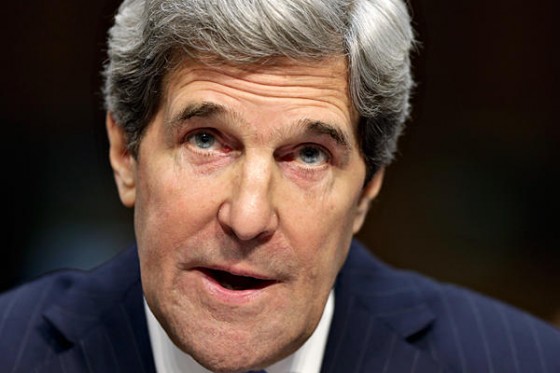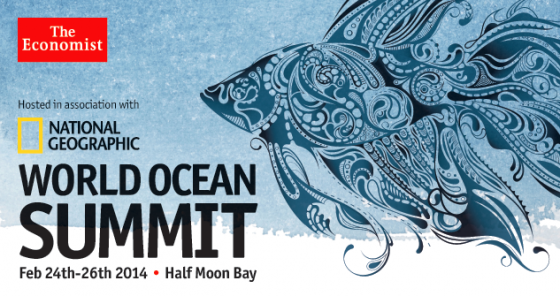At the end of February, between 24-26, took place the “World Ocean Summit 2014”, an event organized by “The Economist” Magazine and some world leaders too.
This year’s Goal can be resumed in these few words, taken from the magazine’s site: “Governance is critical—our seas are in trouble for want of governance. But good governance is difficult to forge—not least in the high seas, where there is little formal jurisdiction. The sustainable use of our seas is equally essential—and intimately linked, of course, to better governance. A small cohort of progressive companies are leading the way on the responsible use of the ocean. They rightly view governance, regulation and certainty—and sustainability—as central to their very future. The best talk now of integrating natural capital approaches into their business models, and of mitigating risks to their businesses of the externalities or threats they may cause”.
[source]
The speakers to this event, included: John Micklethwait (the Editor-in-Chief of The Economist), Secretary Kerry, HSH Prince Albert II de Monaco, Anibal Cavaco Silva (President – Portuguese Republic), HRH Charles, Prince of Wales, (hair to the throne of United Kingdom), Lisel Alamilla (Minister of Forestry, Fisheries & Sustainable Development – Belize), James Anderson (Advisor – Oceans, Fisheries and Aquaculture World Bank, Programme on Fisheries and Aquaculture “PROFISH”), Jeff Ardron (Senior Fellow, Institute for Advanced Sustainability Studies, Germany), David Balton (Assistant Secretary for Oceans and Fisheries, The United States Department of State), Libby Bernick (Senior Vice President, North America – Trucost), Kathryn Bigelow (filmmaker), Peter Boyd, (Chief Operating Officer, Carbon War Room), Juan Manuel Santos Calderón (President – Republic of Colombia), Meg Caldwell (Senior Lecturer at Stanford Woods Institute for the Environment), Bill Campbell (President of Equilibrium Capital Services), Christopher Connor (Chief Executive Officer, Wallenius Wilhelmsen Logistics), Maria Damanaki (Commissioner for Maritime Affairs and Fisheries, European Commission), Alain Delamuraz, (Vice-president & Head of Marketing, Blancpain), José María Figueres (Former President – Republic of Costa Rica), Kristina Gjerde (Senior High Seas Advisor, International Union for the Conservation of Nature “IUCN”), Tony Haymet (Distinguished Professor of Oceanography Scripps Institution of Oceanography, University of California), Paul Holthus (Executive Director, World Ocean Council), Barry Gold (Program Director, Marine Conservation Initiative Gordon and Betty Moore Foundation), Jia Guide (Deputy Director-General, Department of Treaty and Law, Ministry of Foreign Affairs – People’s Republic of China), Miguel Angel Jorge (Managing Director, 50-in-10), Gary Knell (CEO and President – National Geographic Society), Rachel Kyte (Vice President and Special Envoy for Climate Change, The World Bank), Michael Lodge, (Deputy to the Secretary-General and Legal Counsel, International Seabed Authority), Jane Lubchenco (Haas Distinguished Visitor in Public Service, Stanford University), Hans Juergen Matern (Vice President, Head of Corporate Sustainability & Regulatory Affairs, Metro Group), Dorothy Maxwell (Executive Director, Natural Capital Coalition), Nelson Noel Messone, (Minister of Forests, Environment and Protection of Natural Resources – Gabonese Republic), David Miliband (Former Member of Parliament and Secretary of State for Foreign and Commonwealth Affairs – Great Britain), Masamichi Morooka (Chairman – International Chamber of Shipping), Scott Nichols (Director – Verlasso), Paul Nicklen (National Geographic Photographer), Frits van Paasschen (Chief Executive Officer – Starwood Hotels and Resorts), Julie Packard (Trustee – The David and Lucile Packard Foundation), Leon Panetta (Former Secretary of Defense – The United States), Linwood Pendleton (Director of Ocean and Coastal Policy, Duke University’s Nicholas Institute for Environmental Policy Solutions), Maria Ignacia Benitez Pereira (Minister of the Environment – Republic of Chile), Malcolm Preston (Partner, Global Sustainability PricewaterhouseCoopers), Joshua Reichert (Executive Vice President, Director, Environment Initiatives, The Pew Charitable Trusts), Enric Sala (Explorer-in-Residence, National Geographic Society), Mark Schaefer (Assistant Secretary for Conservation and Management, National Oceanic and Atmospheric Administration), Peter Seligmann (Chief Executive Officer – Conservation International), Andrew Sharpless (Chief Executive Officer – Oceana), Jorge Silva (Chief Executive Officer – Mozlog, the oil and gas company from Mozambique), Mark Spalding (Senior Marine Scientist, Global Marine Team The Nature Conservancy), Lisa Speer (Director, International Oceans Program, Natural Resources Defense Council), Achim Steiner (Executive Director, United Nations Environment Program), Martin Stuchtey (Director McKinsey and Company), Suseno Sukoyono (Director General for Agency of Marine and Fisheries Human Resources Development, Republic of Indonesia), Sharif Sutardjo (Minister of Marine Affairs and Fisheries, Republic of Indonesia), Lisa Emelia Svensson (Ambassador for Oceans, Seas and Fresh Water, Sweden), Mark Tercek (President of Nature Conservancy), Rupert Thomas (Vice President Environment, Royal Dutch Shell), David Walker (Chief Executive Officer – DNV GL – Energy), William “Beau” Wrigley (Former Chief Executive Officer and Chairman – Wrigley).
[source]
As you see, from the philanthropic crowned heads and power players, to scientists, “The Secret Life of Walter Mitty” Sean Penn type photographers and business & finance representatives, they all had one common word: Governance. Sorry, two words, “Urgent!” is the second one.
I couldn’t find all their speeches, but what I have found is hilarious. Secretary of State John Kerry is a descendant from sea merchants on his mother side of his family, and because his father was a recreational fisherman, he considers himself a sailor because he was a sailor all his life. He agreed with the agenda and pathetically declared that the oceans are in trouble, but fortunately “they” (probably referring to the assembly) know exactly what to do for that. He implied through a Google Hangout (by the way, Google did there a “presentation” too) that over one billion people depend on sea food, and they are part of the poorest countries and zones, so the oceans need a governance under United Nations, immediately. “A huge chunk of the seafood that is caught around the world is obtained in ways that are illegal, unreported, or unregulated. So this is obviously not only bad for the oceans’ ecosystems, it’s disastrous for the U.S. commercial seafood industry and other seafood industries around the world. And when billions of pounds of illegally obtained seafood makes[sic] its way into the global marketplace, it jeopardizes a million jobs and more than 115 billion in sales every single year. That’s just in the United States.”
Do you see? The second reason was pollution. They never considered that everything “is already regulated”, quite efficiently, by the London based International Maritime Organization. Only one speaker had timidly the courage to mention them, Masamichi Morooka, the ICS chairman, in response to an “emergency” of establishing a World Ocean Organization, mentioning that it works within the framework provided by the United Nations Convention on the Law of the Sea (UNCLOS). He explained that, “although the IMO may be one of the smallest UN Agencies with commensurately modest costs, it regulates the global shipping industry very effectively through a wide range of diplomatic Conventions that are genuinely enforced worldwide.” He also mentioned MARPOL, the IMO convention regarding pollution at sea, CO2 emissions and water acidity.
President of Portugal, Anibal Cavaco Silva, was the last speaker, he ended the summit by saying between other things that “public policies departmentalized for fisheries, for maritime transport or for environmental conservation should be replaced by a new integrated maritime policy.” He knew what he said from an expert position, because Portugal was a giant at sea. Yes. “Was” is the word, and we know, because all of us read “Shogun”.
All sea expenses are regulated by IMO. Now they want us poorer by creating yet another “wealth generator” for some shadow personalities, through this World Ocean Organization. I wonder why they haven’t even touched the “piracy” subject. It seems obvious that pirates’ handlers have deep roots into the very system which ordered this summit.
If you liked what you read (and for that I humbly thank you for your patience), subscribe to this blog by Email! Follow this blog on Twitter, and on Facebook! For a joyous day, check out my pins on Pinterest or my grams on Instagram 😄. I hope you like this blog so much that you think it’s time to take a step further by becoming yourself a blogger; in order to do that have the kindness to read the Own Your Website offer I have prepared for you! You won’t regret. Thanks for passing by 😄 Speak your mind, don’t be shy!
Copyright © 2014 Rodolfo Grimaldi Blog – Ocean Governance


